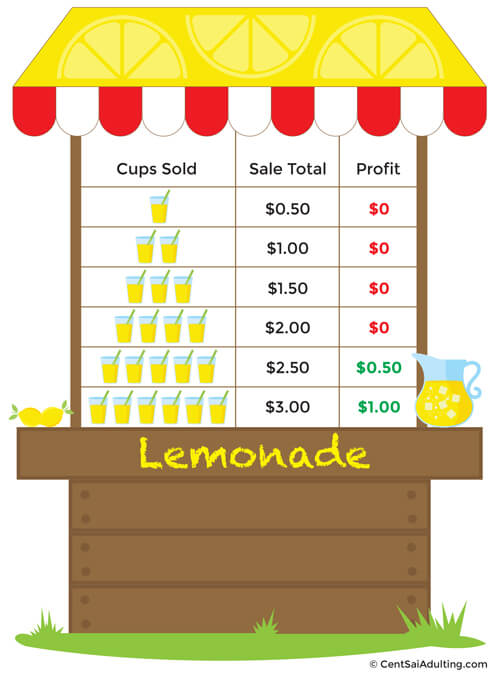For many of us, our first foray into business was a lemonade stand. But they’re more than just a way to entertain kids for a few hours – they’re the perfect opportunity to teach even your youngest child the basics of business.
 When your kids tell you they want to open a lemonade stand, your first inclination might be to roll your eyes or reluctantly head to the grocery store to pick up some packaged lemonade mix. But before you start, it’s a good idea to help your budding entrepreneur take stock of the situation.
When your kids tell you they want to open a lemonade stand, your first inclination might be to roll your eyes or reluctantly head to the grocery store to pick up some packaged lemonade mix. But before you start, it’s a good idea to help your budding entrepreneur take stock of the situation.
Real businesses don’t begin because you simply want them to happen.
It often takes market research and a good business plan to get off the ground. Though your child might not be ready to jump straight into return on investment, he or she can do some basics like scouting locations, visiting competing stands, or doing a cost analysis of supplies. At each stop, ask your future businessperson a few leading questions.
— Competition: What do you like about this stand? Were they friendly? Were the signs easy to read?
— Supplies: Is lemonade the best option? How many servings can you get per recipe or package? How long do you think it will take to make enough?
— Location: Where do you see a lot of people at one time? Is that place safe? What can you do to improve the location?

When they answer these questions, have them write down their notes to encourage them to further think out their plan of action. You’re looking to encourage proactivity rather than passive setup-and-go approaches.
Once your business plan is set, it’s time to talk logistics of being a business owner. One of the biggest challenges is location. If it is going to be placed in a public area, you and your stand owner should do some online research about permit requirements in your city. Getting shut down by some well-meaning cops doesn’t exactly encourage new entrepreneurs from continuing.
Second, comes the all-important budget. Be sure that you and your kid add up expenses, such as the cost of lemons and cups, using basic math principles that are age- and grade-appropriate.
One expense you may forget to factor in is rental cost. Rent or mortgage eats up a large chunk of business budgets and should be accounted for when your business owner thinks of their expenses.
If comfortable, charge a very low, flat fee to use your front lawn or card tables (such as $0.50 per hour) and talk about how many cups of lemonade you will need to sell to make up for the cost of rent.
Once you have your expenses, it’s time to talk pricing. Take down notes of how much you see other children selling their lemonade.
If one stand nearby was selling it at $0.25 per cup, was the cup much smaller than the kid selling it for $0.75? Were there people buying the drink at the higher price?
When you have a rough price in mind for your area, ask them to compare it to your expenses. If it costs $2 to purchase lemonade mix, cups, and rent, how many cups of $0.50 lemonade would they need to sell to make a “profit?”
If your entrepreneur has trouble keeping track, try incorporating a basic chart like the one above. When a cup is sold, have them cross off the row. When they hit the green rows, they have made money.
Advertising is another important takeaway when having a kid set up his or her own business. Be sure to incorporate the cost of fliers and poster supplies in the budget and discuss advertising they see now. What makes it flashy or what do they like about it? How can they replicate that?
By now, you may have noticed that the key point into raising business-savvy kids is having them take the lead. Ask them questions that make them think, and that challenge their perceptions of how businesses operate. At the same time, encourage them to think out of the box (such as selling handmade artwork or “employing” a little sibling).
Whether they make a small fortune or just a dime or two, the success isn’t in them making the sale, but in finding self-confidence, experience, and answers. Who knows? Maybe that lemonade stand entrepreneur will grow up to be the next Bill Gates or Warren Buffet.

